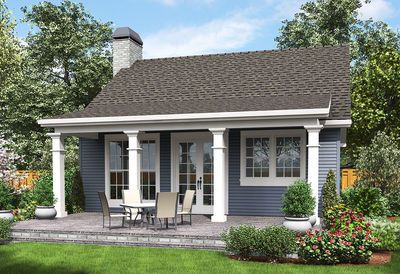
If you are currently in the market to purchase a home, and even if you are merely considering jumping in soon, you might be overwhelmed by frequent news reports that this seller’s market is becoming increasingly challenging for buyers. What you’ve likely heard is true – the pandemic boosted an already quite healthy market, with buyers now looking for larger lots, more square footage, and locations outside of the city proper. Interest rates are low, enticing even more buyers, but so is inventory – it seems that many homes are sold before they’ve been listed for a full day, or before they hit the market publicly at all.
Demand for housing and the skyrocketing price of construction materials is driving the price of the homes that are on the market higher and higher, which means purchasing a home is becoming a trickier undertaking, especially for first time buyers. All of this means the bidding process for homes that are on the market is more competitive than ever before. Nationally the average amount of time each home spends on the market is down to 21 days, which may seem high compared to how quickly homes are snapped up in your area, but keep in mind this average includes everything from high end luxury homes in out of the way locations to distressed shacks that are nearly uninhabitable. The average listing has 3 offers on it at any given time, another number that is rather astonishing when you consider all of the various types of homes that are on the market.
New Credits and Grants for First Time Home Buyers

If the current housing market has you wondering how first time home buyers can possibly compete, you may be happy to learn there are some programs in the works to assist the younger folks you know who are interested in purchasing their first home. The First Time Home Buyer Act currently making its way through Congress includes a new tax credit of $15,000 for first time buyers, and unlike many previous credits, it is refundable. That means if you owe less than $15,000 in taxes next year, you can get a refund of the remaining credit amount when you file your returns.
Another act being debated in Washington is the Downpayment Toward Equity Act, which offers buyers $25,000 – upfront and at closing – to use toward the down payment on their first home. The funds are not a loan, they do not accrue interest, and the money does not need to be repaid at any point.
How to Make Your Initial Offer Stand Out

Your realtor can help you formulate the right strategy for the home you want, but we have some general advice that will make your initial offer more competitive. First, do not request any repairs be done to the home you are purchasing, and specify in writing that the home inspection is for “informational purposes only.” Offers that include a fast inspection period and no request for repairs are likely to be more attractive to sellers than even a higher priced offer, because they allow for a faster selling process.
Of course, not asking for repairs doesn’t mean no repairs will be needed, so you should be prepared to pay out of pocket after the sale if anything needs to be addressed. You can also sign a low appraisal addendum, which means that if the home appraises for less than you have offered, you agree to cut a check for the difference.
Another way you can make sure your offer is attractive is with the addition of an escalation clause. With an escalation clause, you agree to pay a certain amount above any other offer the seller receives. The seller must provide you with proof of the other offer(s), and you can specify an amount that you will not go over. Rentback clauses may also put your offer at the top of the list. A rentback can be paid or free, and involves allowing the seller to continue living in the home (or renting it) for a specified period of time. This is advantageous if either party in the sale needs more time to arrange their move.
Sight Unseen Purchases
Some of the suggestions mentioned above may seem rather extreme compared to how real estate transactions were handled just a few years ago, but some buyers are going to even more drastic measures. Because speed is key in a seller’s market as competitive as what we are dealing with currently, many buyers are making “sight unseen” offers, basing their interest solely off of listings without requiring a visit to the home to see it for themselves. This is one area where the pandemic has really changed the way houses are bought and sold. Over the past year, almost two-thirds of buyers have made an offer on a home without seeing it in person first. Thanks to 3D tours and agents hosting Zoom walkthroughs, sight unseen offers have become less risky and more common.
Know the Numbers

Before you begin your search, familiarize yourself with the local market where you are looking. Are houses selling in 3-4 days on average? What is the average sale price for homes that meet your specifications? And what percentage over asking price are homes selling for? Prepare your search, and your budget accordingly. If your ceiling is $800,000, start your search with a limit of $700,000 to see what you can find. This gives you the leeway to make a competitive offer that is well above the asking price while still staying in your budgetary comfort zone.
Prioritizing Needs and Wants
If you began your search with a list of 10-12 “must haves,” you will likely find that some items from that list must be trimmed away in order for you to find a home that works for you and your family. Keep an open mind and a creative eye when you are looking at listings. In many cases, it will be cheaper for you in the long run, and get you into a new home faster, if you are willing to make some renovations and retrofit an older home to include your necessities.

For example, intergenerational living has become much more popular due to the pandemic. College students can be sent home from school unexpectedly when dorms are shuttered, and many of us no longer feel as confident with housing our aging relatives in assisted living facilities, which can roll up the welcome carpet and disallow visitations if local governments elect to restrict such activities. A space large enough for adult children and aging parents to coexist comfortably is at the top of many buyers’ lists. Before passing on homes that do not include such space, consider whether a basement can be renovated to include a kitchen, or if a lot is large enough for an addition or guest house.
Be Prepared to Lose a Few
With more than half of all offers facing stiff competition in the current market, it’s more likely than not that you’ll get into a bidding war with other like-minded buyers. It’s best to reset your expectations from the beginning and enter the process mentally prepared to lose out on more than one of the dream homes you choose. It’s also smart to know when to walk away from a deal that doesn’t feel right. Offering too many concessions when you aren’t 100% sure the house is right for you isn’t the solution in a competitive market. Unless you are desperately in need of relocating, it’s also OK to put your search on hold if you reach the point where you’re not comfortable continuing to make the aggressive offers that are often necessary to win in today’s market. After all, you don’t want your bidding war to leave you with a serious case of buyer’s remorse.
What’s Next for the Housing Market

Many people believe that a market this good can’t possibly last. Google searches like “when is the housing market going to crash” are up 2,450%. It’s hard to fault people for being afraid – for some, today’s real-estate market feels strangely similar to the market conditions that preceded the Great Recession. And, given that the last housing boom triggered a global economic meltdown, it’s hard to blame anyone for having such concerns. However, trouble like we saw in 2008 is nowhere on the horizon.
Most experts agree the housing market is showing no signs of stopping its upward climb, with many predicting home prices will finish 2021 up almost 6% over 2020’s numbers. Experts also agree that the suburban migration will continue, pushing the outer reaches of metro Atlanta further and further into the formerly rural counties. Construction of new homes will continue at current levels in spite of rising costs, but how they are built will change. New home builders have paid attention to shifting attitudes in housing, and more homes are being built with full finished basements that include at least one, if not more, bathrooms. You can also expect to see more homes with “dual masters” where an additional bedroom includes both an ensuite bathroom and is the size of a common master bedroom.

